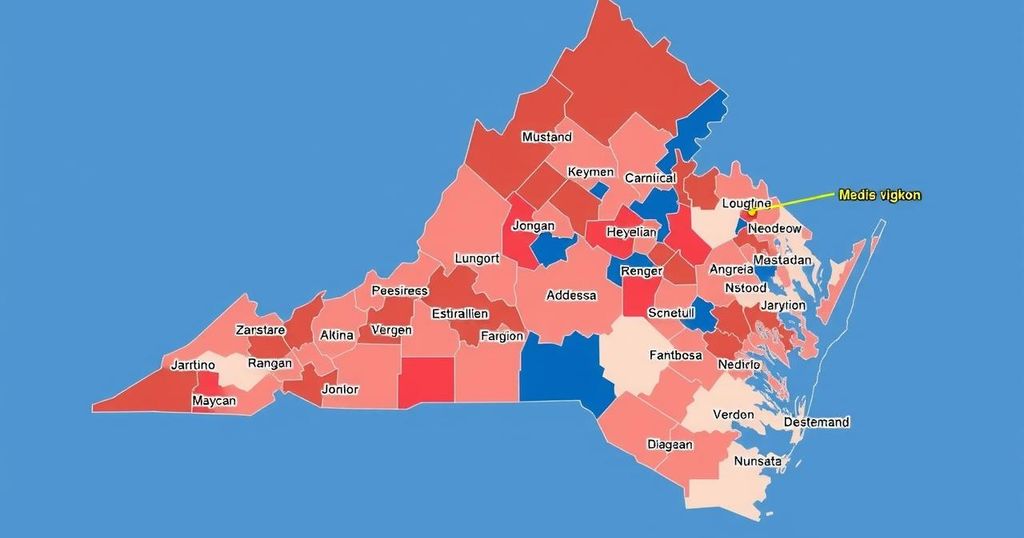Virginia Special Elections: Critical Races Ahead of General Assembly Session

Voters in Loudoun County and central Virginia will decide on two state senators and one House member in critical special elections. The elections are significant for both Republicans and Democrats as they could change control in the General Assembly. Candidates present starkly different views on important issues, highlighting the competitive nature of these races.
On Tuesday, voters in Loudoun County and central Virginia will participate in three special elections to select two state senators and a House of Delegates member, coinciding with the General Assembly session starting Wednesday. Republicans aim to gain control of both chambers by flipping the two Loudoun County Senate seats, though they face significant challenges in high-density Democratic areas. In a similarly competitive race, Democrats hope to maintain their slim majority in the Senate amid growing competition for the vacant seat previously held by McGuire.
Notably, voter turnout in special elections can often lead to unexpected outcomes. Republican victories in these races could considerably influence Governor Glenn Youngkin’s agenda during the final year of his term. Currently, Democrats possess a narrow majority in the Senate with a 21-to-19 split, which may shift if they fail to retain the seat vacated by Subramanyam. Furthermore, the resignation of Del. Kannan Srinivasan shifts the House balance to a pending 51-to-49 distribution, increasing the stakes for both parties.
In the Loudoun Senate contest, Del. Srinivasan, a first-generation immigrant and experienced legislator, is competing against Tumay Harding, a former teacher and outspoken critic of local school policies. Their contrasting views on abortion reflect broader ideological divides, with Srinivasan advocating for reproductive rights while Harding holds conservative positions.
In the House race to replace Srinivasan, Democrat JJ Singh, who emphasizes economic and social issues, will face Republican Ram Venkatachalam, focused on economic development and educational reform. Meanwhile, in central Virginia, Republican Luther Cifers challenges Democrat Jack Trammell for the vacated Senate seat. Cifers positions himself as a conservative focused on education and housing affordability, while Trammell advocates for economic initiatives in rural areas and progressive social policies.
The final outcomes of these special elections could significantly impact the political landscape in Virginia, affecting both legislative agendas and representation in the General Assembly. With a mixture of experienced candidates and political newcomers, these races are poised to set the stage for potential shifts in governance as both parties prepare for future electoral battles.
This article reports on three special elections occurring in Loudoun County and central Virginia, where voters will select new representatives for the state Senate and the House of Delegates. The elections take place just before the opening of the General Assembly session, heightening their significance. The background includes the political dynamics in Virginia, characterized by a competitive tug-of-war between Republicans and Democrats, particularly in electorally contentious areas. The stakes for these elections are high, as Republicans seek to regain control of the House and Senate while Democrats aim to defend their narrow majorities. Insights into the candidates’ backgrounds and policy positions highlight the ideological divides on key issues like abortion, education, and economic policy, offering voters distinctive choices.
In conclusion, the upcoming special elections in Virginia represent a critical moment for both parties, with significant implications for the legislative landscape. As voters head to the polls, the outcomes could alter the balance of power in the General Assembly, potentially enabling Republicans to influence Governor Youngkin’s agenda more profoundly or entrenching Democratic control. Each candidate’s platform reveals severe ideological differences, emphasizing critical issues that will shape Virginia’s future governance.
Original Source: www.washingtonpost.com






